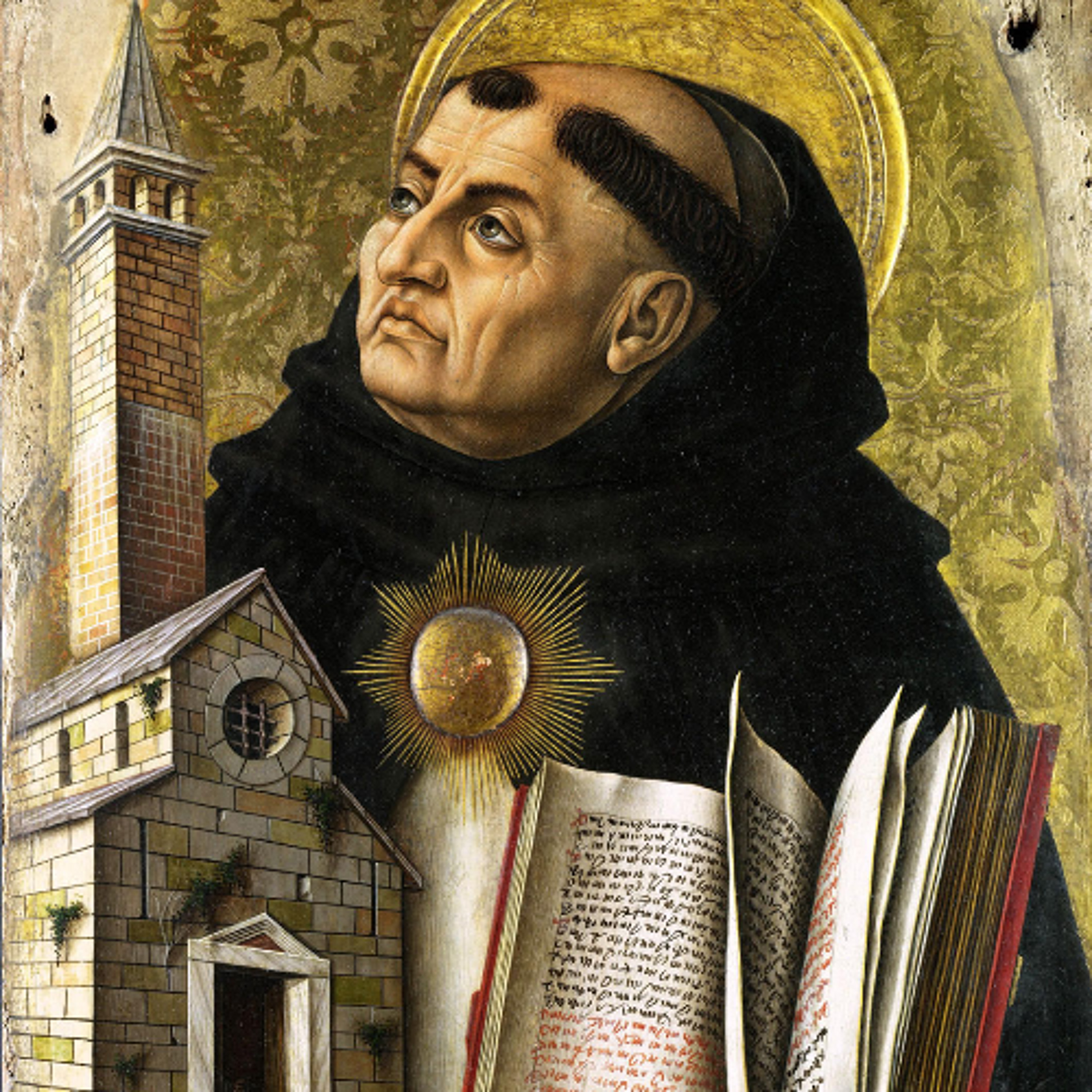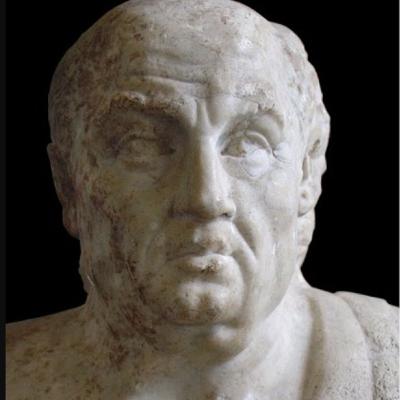Discover Sadler's Lectures
Sadler's Lectures

Sadler's Lectures
Author: Lectures on classic and contemporary philosophical texts and thinkers by Gregory B. Sadler
Subscribed: 280Played: 29,720Subscribe
Share
© All rights reserved
Description
I'm that YouTube Philosophy Guy! Find more than 3,000 videos in my main channel. Support my video and podcast work! https://www.patreon.com/sadler or https://www.buymeacoffee.com/A4quYdWoM
Learn more about this podcast channel - https://youtu.be/qRvL0gqlyrw and https://gregorybsadler.substack.com/p/the-sadlers-lectures-podcast
Due to popular demand - and with the work underwritten by my Patreon supporters - I have been converting my videos into MP3 files listeners can listen to anywhere they want!
I have a second podcast, Mind & Desire, publishing original episodes on a variety of topics in philosophy, which you can find here - https://gregorybsadler.substack.com/podcast
Learn more about this podcast channel - https://youtu.be/qRvL0gqlyrw and https://gregorybsadler.substack.com/p/the-sadlers-lectures-podcast
Due to popular demand - and with the work underwritten by my Patreon supporters - I have been converting my videos into MP3 files listeners can listen to anywhere they want!
I have a second podcast, Mind & Desire, publishing original episodes on a variety of topics in philosophy, which you can find here - https://gregorybsadler.substack.com/podcast
1532 Episodes
Reverse
This is my relatively short talk given during the 2025 Plato's Academy multidisciplinary conference: The Philosophy and Psychology of Anger, during which I discuss some of the useful insights and practices early Christian thinkers (2nd-5th Century CE) can provide us. These don't require one to be committed to Christianity and can be applied by a wide range of people.
I begin with a passage from Pierre Hadot's book Philosophy As A Way Of Life: "[Christians] believed they recognized spiritual exercises, which they had learned through philosophy, in specific scriptural passages . . . The reason why Christian authors paid attention to these particular biblical passages, was that they were already familiar, from other sources, with the spiritual exercises of prosokhē, meditation on death, and examination of the conscience.”
What Hadot calls “spiritual exercises” gets called by a variety of other terms by other thinkers. Foucault’s "technologies of the self", Nussbaum’s "therapeutic arguments", as well as the more general "philosophical practices" many of us reference in our work and study.
What we can say about these early Christian thinkers is that many had a philosophical education, had opportunities to engage with pagan philosophical schools, some of which had pretty strong religious stances, with precursor and contemporary Jewish thought, and with a variety of other disciplines like rhetoric, medicine, literature, political theory, law, history, music, etc. There was already a strong interest in issues about anger already raised and debated in ancient philosophy including: vicious anger, can anger have useful role, dangers of indulging or excusing anger, anger and courage or justice, types or levels of anger, divine anger. Early Christian thinkers rely upon or incorporating broadly Platonic psychology, and ethical conceptions drawn from Platonist, Stoic, and Aristotelian schools, but within a framework Christianity provides.
The thinkers I reference and discuss in this presentation include:
2nd-4th Century CE: Clement of Alexandria 150 – c. 215 AD, Tertullian 155 – c. 220, Origen 185 – c. 253, Lactantius 250 – c. 325
4th 5th century CE: Basil of Caesarea 330 – 379, Gregory of Nyssa 335, Evagrius Ponticus 345–399 AD, John Chrysostom 347-407, Ambrose 339-397, Jerome 342–347-420, Prudentius 348-413?, John Cassian 360 – 435, Augustine of Hippo 354-430
Some of the key scriptural passages they tend to engage most heavily with include:
A number of discussions of anger in Pre-Christian Jewish scriptures, particularly in the Psalms, Proverbs, and Sirach
The Sermon on the Mount in Matthew 5, Paul’s Letter To Ephesians, and the Letter of James
There is a stress on identifying and dealing with vices that involve anger, but also on developing virtues of Patience, Humility, Mercy, and Forgiveness. They also adopt, develop, and discuss a number of useful practices for lessening, understanding, or dealing with anger.
This is a talk I was invited to provide to the inaugural 2021 Stoicon-X Military conference, held online. I chose as my topic the scope of genuine courage, a topic of considerable importance but also frequent misunderstandings within professions like that of the military.
In this talk I discuss what courage is and what it is for, the scope of courage, including its constituent virtues, and finally the relationship between courage and the other virtues.
This is the recording of my short presentation and the Q&A at the second Conversations With Modern Stoicism event, hosted in July 2023 by Phil Yanov. Asked to give a short and provocative presentation about an issue that arises in the everyday applications of Stoicism, I chose to focus on a common mistake and distortion of Stoic philosophy and practice.
Quite a few people think that Stoicism means that a person shouldn't exhibit or feel care, concern, or compassion for others who experience something that they view and react to as "bad". There are indeed some passages from Stoic authors that one can take out of context to justify such a stance. But when Stoicism is rightly understood, and when we look at other, equally authoritative passages, we see that the authentic Stoic position is to be compassionate and concerned with others.
This is a podcast of a guest sermon, given by invitation to the Unitarian Universalist Community of the Catskills.
A guest sermon invited by the Unitarian Universalist Community of the Catskills, Aug 9, 2015. In it, I discuss Rainer Maria Rilke's conception of "solitude" (Einsamkeit), and its relevance to our contemporary lives. Explaining how the two dimensions of slowing down temporally and making space spatially figure into the development of solitude as Rilke describes it, I suggest that in our own era, time has become the more scarce resource.
You can read a transcript of the sermon here: https://www.academia.edu/14942470/Solitude_Slowing_Down_and_Clearing_Space
This lecture discusses key ideas from the medieval Christian philosopher and theologian Thomas Aquinas' Summa Theologiae, 1st part, question 27, "The Causes Of Love", and examines his discussions in article 2, which centers on whether and how knowledge can be a cause of love.
To support my ongoing work, go to my Patreon site - www.patreon.com/sadler
If you'd like to make a direct contribution, you can do so here - www.paypal.me/ReasonIO - or at BuyMeACoffee - www.buymeacoffee.com/A4quYdWoM
You can find over 3500 philosophy videos in my main YouTube channel - www.youtube.com/user/gbisadler
Purchase Thomas Aquinas' Summa Theologiae - amzn.to/2ITcKYQ
This is a podcast of a guest sermon, given by invitation to the Unitarian Universalist Community of Rock Tavern. In it, I discuss anger as a common problem not only of our own times, but of all times.
Christian teachings on anger present us with some "hard sayings," and several 4th century thinkers -- John Cassian, Augustine of Hippo, and John Chrysostom -- are very helpful for understanding how to live with and live out these difficult requirements.
A transcript of the sermon is available here: https://www.academia.edu/14942379/_And_Whoever_is_Angry_With_His_Brother_Early_Christian_Insights_A
This lecture discusses key ideas from the medieval Christian philosopher and theologian Thomas Aquinas' Summa Theologiae, 1st part, question 27, "The Causes Of Love", and examines his discussions in article 3, which centers on whether and how likeness (similitudo) is a cause of love, particularly between similar people. He addresses the issue raised by the classical proverb "potter against potter" and discusses several different modes of likeness
To support my ongoing work, go to my Patreon site - www.patreon.com/sadler
If you'd like to make a direct contribution, you can do so here - www.paypal.me/ReasonIO - or at BuyMeACoffee - www.buymeacoffee.com/A4quYdWoM
You can find over 3500 philosophy videos in my main YouTube channel - www.youtube.com/user/gbisadler
Purchase Thomas Aquinas' Summa Theologiae - amzn.to/2ITcKYQ
This lecture discusses key ideas from the medieval Christian philosopher and theologian Thomas Aquinas' Summa Theologiae, 1st part, question 27, "The Causes Of Love", and examines his discussions in articles 1 and 4, which center on the issues whether goodness in some sense is a cause of love and whether any other passion is the case of love. Aquinas' answers are that in every case, some good is the cause of love, even seemingly in the case of hatred, which presumes love as well. He also clarifies that love is at the root of all the other passions, although is specific cases, love can be also caused by a specific passion.
To support my ongoing work, go to my Patreon site - www.patreon.com/sadler
If you'd like to make a direct contribution, you can do so here - www.paypal.me/ReasonIO - or at BuyMeACoffee - www.buymeacoffee.com/A4quYdWoM
You can find over 3500 philosophy videos in my main YouTube channel - www.youtube.com/user/gbisadler
Purchase Thomas Aquinas' Summa Theologiae - amzn.to/2ITcKYQ
This lecture discusses key ideas from the medieval Christian philosopher and theologian Thomas Aquinas' Summa Theologiae, 1st part of the second part, question 26 "Of Love", and examines his discussions in articles 3-4, which center on different senses or modalities of love (amor). He makes a distinction between four terms: love, dilection (dilectio), friendship (amicitia) and charity (caritas), and discusses the differences in their application, and then examines the distinction between love of friendship and love of concupiscence (which also applies to friendships based on pleasure or utility)
To support my ongoing work, go to my Patreon site - www.patreon.com/sadler
If you'd like to make a direct contribution, you can do so here - www.paypal.me/ReasonIO - or at BuyMeACoffee - www.buymeacoffee.com/A4quYdWoM
You can find over 3500 philosophy videos in my main YouTube channel - www.youtube.com/user/gbisadler
Purchase Thomas Aquinas' Summa Theologiae - amzn.to/2ITcKYQ
This lecture discusses key ideas from the medieval Christian philosopher and theologian Thomas Aquinas' Summa Theologiae, 1st part of the second part, question 26 "Of Love", and examines his discussions in articles 1-2, which center on determining where love is within the things and specifically within human being. Thomas will frame this in terms of nature and natural love, the sensitive concupiscible appetite and love as a passion, and the intellectual appetite or will and love as an act
To support my ongoing work, go to my Patreon site - www.patreon.com/sadler
If you'd like to make a direct contribution, you can do so here - www.paypal.me/ReasonIO - or at BuyMeACoffee - www.buymeacoffee.com/A4quYdWoM
You can find over 3500 philosophy videos in my main YouTube channel - www.youtube.com/user/gbisadler
Purchase Thomas Aquinas' Summa Theologiae - amzn.to/2ITcKYQ
This lecture discusses key ideas from the medieval Christian philosopher and theologian Thomas Aquinas' Summa Theologiae, 1st part, question 20, "God's Love", and examines his discussions in articles 3-4, which center on the issues of whether God loves some things more than others or not, and whether God loves better things more than others. For Thomas, this centers upon a distinction about ways in which one can love more or less. One way has to do with the act of will itself, i.e. willing good to another. The other has to do with the good that is willed to the other. God can and does will more or better goods for certain things than others, so God can love some things more than others in that respect.
To support my ongoing work, go to my Patreon site - www.patreon.com/sadler
If you'd like to make a direct contribution, you can do so here - www.paypal.me/ReasonIO - or at BuyMeACoffee - www.buymeacoffee.com/A4quYdWoM
You can find over 3500 philosophy videos in my main YouTube channel - www.youtube.com/user/gbisadler
Purchase Thomas Aquinas' Summa Theologiae - amzn.to/2ITcKYQ
This lecture discusses key ideas from the medieval Christian philosopher and theologian Thomas Aquinas' Summa Theologiae, 1st part, question 20, "God's Love", and examines his discussion in article 2, which examines the question whether God loves things other than God. Thomas considers four main lines of reasoning that would say that God either doesn't love other things or only loves some other things but not others. He then clarifies that God wills good to all things that exist, giving them the very being and goodness that they possess, so God loves all things insofar as they are. This doesn't mean that he loves all things to the same extent or in the same ways.
To support my ongoing work, go to my Patreon site - www.patreon.com/sadler
If you'd like to make a direct contribution, you can do so here - www.paypal.me/ReasonIO - or at BuyMeACoffee - www.buymeacoffee.com/A4quYdWoM
You can find over 3500 philosophy videos in my main YouTube channel - www.youtube.com/user/gbisadler
Purchase Thomas Aquinas' Summa Theologiae - amzn.to/2ITcKYQ
This lecture discusses key ideas from the medieval Christian philosopher and theologian Thomas Aquinas' Summa Theologiae, 1st part, question 20 "God's Love", and examines on his discussion in article 1, which addresses the issue whether love is in God. Aquinas considers several arguments against love being in God and addresses each of them. He also explains how it is that love is in God by looking at how the will tends towards the universal or common good through love.
To support my ongoing work, go to my Patreon site - www.patreon.com/sadler
If you'd like to make a direct contribution, you can do so here - www.paypal.me/ReasonIO - or at BuyMeACoffee - www.buymeacoffee.com/A4quYdWoM
You can find over 3500 philosophy videos in my main YouTube channel - www.youtube.com/user/gbisadler
Purchase Thomas Aquinas' Summa Theologiae - amzn.to/2ITcKYQ
This lecture discusses key ideas from the sequence of letters between two great Medieval intellectuals, lovers, and religious Heloise D'Argenteuil and Peter Abelard
It focuses specifically on the fifth and sixth letters, which are by Heloise and Abelard respectfully. In these letters both of the married lovers have opted for leaving their previous amorous and conjugal love behind and shifting their attention to God. They also both admit their ongoing struggles to see this commitment through consistently.
To support my ongoing work, go to my Patreon site - www.patreon.com/sadler
If you'd like to make a direct contribution, you can do so here - www.paypal.me/ReasonIO - or at BuyMeACoffee - www.buymeacoffee.com/A4quYdWoM
You can find over 3500 philosophy videos in my main YouTube channel - www.youtube.com/user/gbisadler
Read Heloise and Abelard's Letters - https://www.gutenberg.org/files/35977/35977-h/35977-h.htm
This lecture discusses key ideas from the sequence of letters between two great Medieval intellectuals, lovers, and religious Heloise D'Argenteuil and Peter Abelard
It focuses specifically on the fourth letter, which is by Heloise. In this letter Heloise reaffirms her love for her husband Abelard, and asserts that life will have little value or attraction for her after he dies. She explains what emotions she experiences, and the despair she feels about their situation, and then discusses the conflicts within her heart and mind that stand in the way of genuine and consistent repentance on her part
To support my ongoing work, go to my Patreon site - www.patreon.com/sadler
If you'd like to make a direct contribution, you can do so here - www.paypal.me/ReasonIO - or at BuyMeACoffee - www.buymeacoffee.com/A4quYdWoM
You can find over 3500 philosophy videos in my main YouTube channel - www.youtube.com/user/gbisadler
Read Heloise and Abelard's Letters - https://www.gutenberg.org/files/35977/35977-h/35977-h.htm
This lecture discusses key ideas from the sequence of letters between two great Medieval intellectuals, lovers, and religious Heloise D'Argenteuil and Peter Abelard
It focuses specifically on the third letter, which is by Abelard. It discusses Heloise's proposal that although they have taken monastic vows, they can rightly enjoy some married life together through writing letters to each other, and Abelard's rejection of that suggestion. He tell her that they both must turn to God and make Christian perfection their goal, even if that means leaving their amorous relationship behind, and he tells her that by his own confessions, he intends to change her love into contempt or hatred for him.
To support my ongoing work, go to my Patreon site - www.patreon.com/sadler
If you'd like to make a direct contribution, you can do so here - www.paypal.me/ReasonIO - or at BuyMeACoffee - www.buymeacoffee.com/A4quYdWoM
You can find over 3500 philosophy videos in my main YouTube channel - www.youtube.com/user/gbisadler
Read Heloise and Abelard's Letters - https://www.gutenberg.org/files/35977/35977-h/35977-h.htm
This lecture discusses key ideas from the sequence of letters between two great Medieval intellectuals, lovers, and religious Heloise D'Argenteuil and Peter Abelard
It focuses specifically on the second letter, which is by Heloise. It discusses the arguments that she advances in the letter, which center on her view that they can continue to enjoy their married relationship through writing letters to each other, even though after Abelard's castration both of them took religious vows and began monastic life.
To support my ongoing work, go to my Patreon site - www.patreon.com/sadler
If you'd like to make a direct contribution, you can do so here - www.paypal.me/ReasonIO - or at BuyMeACoffee - www.buymeacoffee.com/A4quYdWoM
You can find over 3500 philosophy videos in my main YouTube channel - www.youtube.com/user/gbisadler
Read Heloise and Abelard's Letters - https://www.gutenberg.org/files/35977/35977-h/35977-h.htm
This lecture discusses key ideas from the sequence of letters between two great Medieval intellectuals, lovers, and religious Heloise D'Argenteuil and Peter Abelard
It focuses specifically on the first letter, which is by Abelard. It discusses the consolation Abelard attempts to provide his fried by recounting the story of his life, which includes his romantic, intellectual, and sexual involvement with Heloise, their marriage, his castration, and their taking religious vows and entering monastic life.
To support my ongoing work, go to my Patreon site - www.patreon.com/sadler
If you'd like to make a direct contribution, you can do so here - www.paypal.me/ReasonIO - or at BuyMeACoffee - www.buymeacoffee.com/A4quYdWoM
You can find over 3500 philosophy videos in my main YouTube channel - www.youtube.com/user/gbisadler
Read Heloise and Abelard's Letters - https://www.gutenberg.org/files/35977/35977-h/35977-h.htm
This lecture discusses key ideas from the ancient Stoic philosopher Seneca's Letters, this one looking at Letter 109
It focuses specifically on whether or not a wise person, according to the Stoics, would want or need to be involved with other people, particularly other wise people, to which his answer (perhaps surprisingly to some) is yes. He provides some reasonings for the position he articulates on this, including how the wise person, despite in a strict sense not needing anything or anyone else, will nevertheless desire to share their life with others, and will also benefit from the advice and fellowship of other wise people.
To support my ongoing work, go to my Patreon site - www.patreon.com/sadler
If you'd like to make a direct contribution, you can do so here - www.paypal.me/ReasonIO - or at BuyMeACoffee - www.buymeacoffee.com/A4quYdWoM
You can find over 3500 philosophy videos in my main YouTube channel - www.youtube.com/user/gbisadler
Purchase Seneca's Letters - amzn.to/2Myx6os
This lecture discusses key ideas from the ancient Stoic philosopher Seneca's Letters, this one looking at Letter 99
In this letter, after a brief introductory paragraph, Seneca reproduces a letter sent to a different correspondent Marullus when he had lost a young child. Although Seneca says that his goal is not to console but rather to offer criticism, he in effect does both of these, offering a number of considerations that can prove helpful to a person who is grieving the loss of a loved one.
To support my ongoing work, go to my Patreon site - www.patreon.com/sadler
If you'd like to make a direct contribution, you can do so here - www.paypal.me/ReasonIO - or at BuyMeACoffee - www.buymeacoffee.com/A4quYdWoM
You can find over 3500 philosophy videos in my main YouTube channel - www.youtube.com/user/gbisadler
Purchase Seneca's Letters - amzn.to/2Myx6os


















Denying the existence of something derives from the nothing? That sounds like nonsense to me. And what is nothing?
Does his test pass itself?